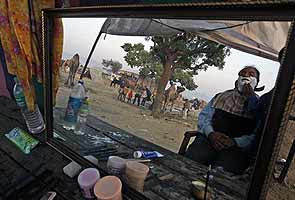 Jetzt haben wir die Vortragsfolien zum Symposium “Indien als Herausforderung für ‘Hidden Champions’: Erfolgsfaktoren der Marktbearbeitung für deutsche Mittelständler” (10. Sept. 2013, Handelskammer Hamburg) online zur Verfügung gestellt. Das Symposium fand im Rahmen der India Week Hamburg 2013 statt und wurde vom Institut für Technologie- und Innovationsmanagement der TU Hamburg-Harburg, dem German-Indian Round Table Hamburg, und der Handelskammer Hamburg gemeinsam organisiert.
Jetzt haben wir die Vortragsfolien zum Symposium “Indien als Herausforderung für ‘Hidden Champions’: Erfolgsfaktoren der Marktbearbeitung für deutsche Mittelständler” (10. Sept. 2013, Handelskammer Hamburg) online zur Verfügung gestellt. Das Symposium fand im Rahmen der India Week Hamburg 2013 statt und wurde vom Institut für Technologie- und Innovationsmanagement der TU Hamburg-Harburg, dem German-Indian Round Table Hamburg, und der Handelskammer Hamburg gemeinsam organisiert.
- Grußworte von Dr. Vidhu P. Nair, dem amtierenden Generalkonsul Indiens in Hamburg (in Englisch, PDF, ca. 65 KB)
- Eröffnungsvortrag: Chancen und Herausforderungen des indischen Marktes für deutsche “Hidden Champions” (Dr. Stephan Buse / Dr. Rajnish Tiwari, TIM/TUHH) (PDF, ca. 2,0 MB)
- Fallstudie “CLAAS India”: Beispiel eines erfolgreichen deutschen “Hidden Champion” in Indien (Dr. Jens Oeding, Regional Director Asia, CLAAS Gruppe) (PDF, ca. 2,9 MB)
- Erfahrungsbericht eines Dienstleisters: Erfolgsfaktoren der Marktbearbeitung für deutsche Mittelständler (Thomas Breitinger, Senior Project Manager, Maier + Vidorno Marketing and Sales Pvt. Ltd.) (PDF, ca. 1,3 MB)
- “Potential in India for German companies: Taking the right path” (Umesh Kapur, Director Canara Bank Securities Ltd., New Delhi) (PDF not available as yet)
Bei Rückfragen oder Anmerkungen wenden Sie sich bitte an Dr. Stephan Buse oder Dr. Rajnish Tiwari.



